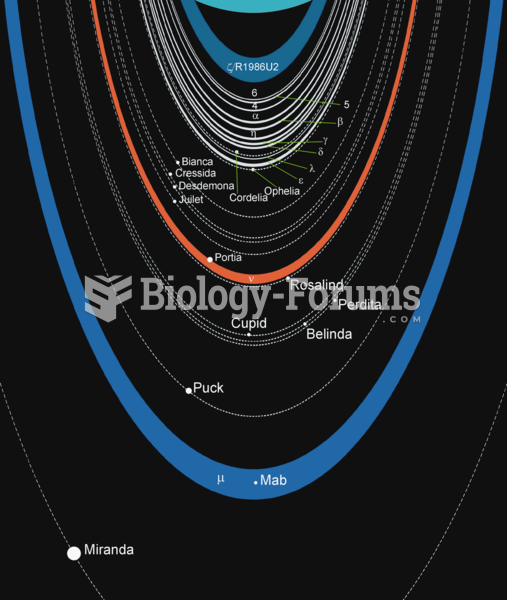|
|
|
A cataract is a clouding of the eyes' natural lens. As we age, some clouding of the lens may occur. The first sign of a cataract is usually blurry vision. Although glasses and other visual aids may at first help a person with cataracts, surgery may become inevitable. Cataract surgery is very successful in restoring vision, and it is the most frequently performed surgery in the United States.
Earwax has antimicrobial properties that reduce the viability of bacteria and fungus in the human ear.
Bacteria have been found alive in a lake buried one half mile under ice in Antarctica.
Drying your hands with a paper towel will reduce the bacterial count on your hands by 45–60%.
The first monoclonal antibodies were made exclusively from mouse cells. Some are now fully human, which means they are likely to be safer and may be more effective than older monoclonal antibodies.







